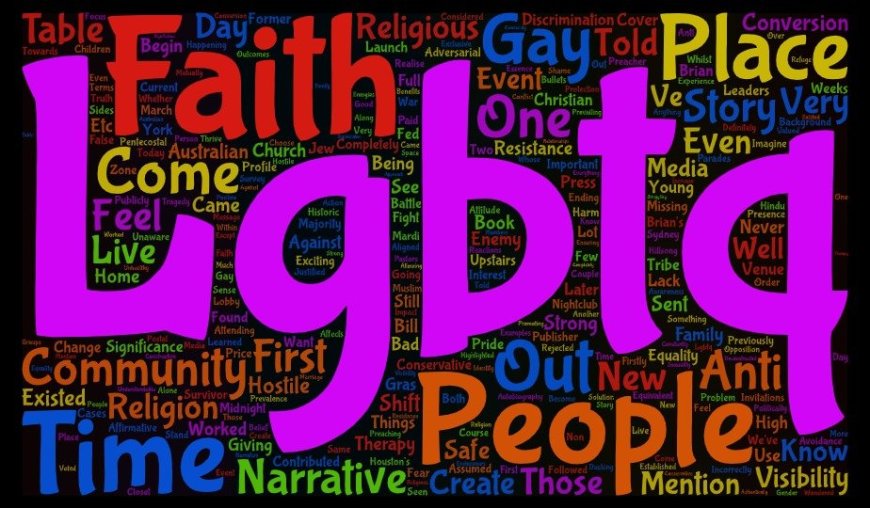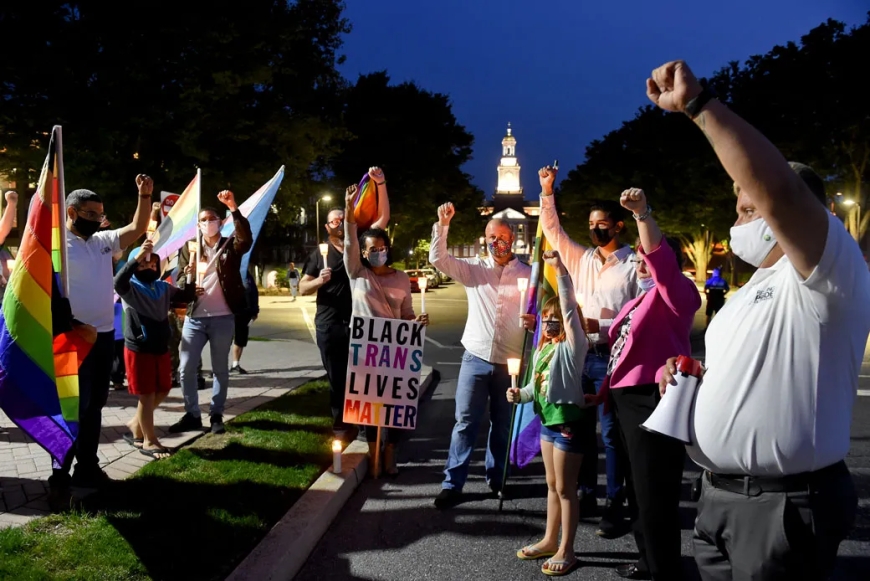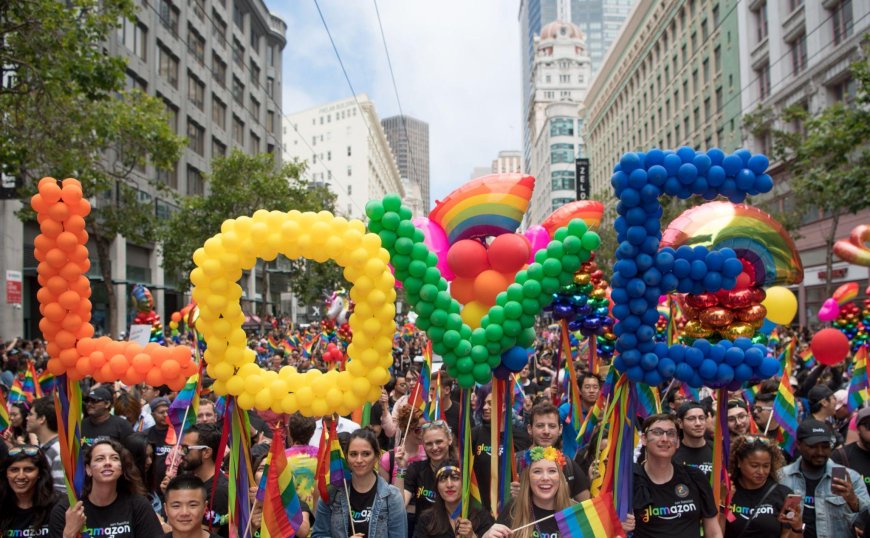Navigating Faith and Sexual Identity: LGBTQ+ Issues in Religious Communities
Explore how religious communities are addressing LGBTQ+ inclusion, sexual identity, and faith-based approaches to sexual orientation and gender identity.

The intersection of faith and sexual identity represents one of the most challenging and evolving areas in contemporary religious life. For LGBTQ+ individuals who hold deep religious beliefs, and for faith communities grappling with inclusion and traditional teachings, navigating these waters requires courage, compassion, and careful theological reflection. As religious communities worldwide wrestle with questions of sexual orientation, gender identity, and spiritual belonging, new conversations are emerging that seek to honor both authentic faith and the full humanity of LGBTQ+ believers.
The Personal Journey: Faith and Identity Integration
For many LGBTQ+ individuals raised in religious communities, the process of integrating sexual or gender identity with faith can be profoundly challenging. The journey often begins with recognizing aspects of themselves that seem to conflict with religious teachings they've internalized since childhood.
Many LGBTQ+ people of faith describe experiencing what researchers term "minority stress"—the psychological burden of existing at the intersection of marginalized identities. This stress can be particularly acute when religious teachings appear to condemn core aspects of one's identity, leading to internal conflict between spiritual convictions and authentic self-expression.
The path toward integration varies significantly among individuals. Some find ways to reconcile their faith with their sexual or gender identity through progressive theological interpretations. Others may modify their religious practice while maintaining spiritual connections. Still others may separate from their religious communities while preserving personal faith, or may unfortunately abandon faith entirely due to perceived incompatibility.
Research shows that LGBTQ+ individuals who successfully integrate their faith and sexual identity often demonstrate remarkable resilience and develop sophisticated theological understandings that honor both aspects of their lives. Many become advocates for inclusion within their religious communities, drawing on their lived experience to help others navigate similar journeys.
Progressive Christian Movements: Affirmation and Inclusion
Within Christianity, progressive movements have developed theological frameworks that fully affirm LGBTQ+ identities while maintaining orthodox Christian doctrine on central matters of faith. These communities often emphasize that sexual orientation and gender identity are part of God's diverse creation rather than deviations from divine intent.
Progressive Christian theology typically focuses on the biblical principles of love, justice, and inclusion rather than specific passages that have traditionally been interpreted as condemning homosexuality. Scholars in these movements often argue that biblical prohibitions were addressed to specific cultural contexts and practices rather than establishing universal principles about sexual orientation.
The Episcopal Church, Presbyterian Church (USA), United Church of Christ, and many Lutheran denominations have moved toward full inclusion, ordaining LGBTQ+ clergy and performing same-sex marriages. These denominations often emphasize that the gospel's central message of God's love and acceptance extends to all people regardless of sexual orientation or gender identity.
Progressive Christian communities have developed extensive resources for LGBTQ+ believers, including affirming worship services, support groups, and educational materials that help individuals integrate faith and identity. Organizations like Believe Out Loud and the Gay Christian Network provide online communities and resources for LGBTQ+ Christians and their allies.
Traditional Christian Responses: Compassion Within Conviction
Many traditional Christian communities maintain historic teachings about sexuality while seeking to develop more compassionate pastoral approaches to LGBTQ+ individuals. These communities often distinguish between sexual orientation (which they may view as involuntary) and sexual behavior (which they believe should align with biblical teaching).
The Catholic Church's approach exemplifies this position, teaching that homosexual persons "must be accepted with respect, compassion, and sensitivity" while maintaining that homosexual acts are "contrary to natural law." This approach attempts to show pastoral care for LGBTQ+ individuals while upholding traditional moral theology.
Some evangelical Protestant communities have developed "Side B" approaches that welcome LGBTQ+ individuals while maintaining traditional sexual ethics. These communities often support celibate gay Christians and emphasize that all believers, regardless of sexual orientation, are called to live according to biblical standards of sexual morality.
Traditional communities increasingly recognize the harm caused by conversion therapy and other attempts to change sexual orientation, instead focusing on spiritual formation and community support for LGBTQ+ believers who choose to live according to traditional sexual ethics.
Islamic Perspectives: Scholarship and Pastoral Challenges
Islamic communities face particular challenges in addressing LGBTQ+ issues due to clear Quranic prohibitions of homosexual acts and the central role of Islamic law (Shariah) in religious life. However, contemporary Muslim scholars and communities are developing more nuanced approaches that distinguish between religious law and pastoral care.
Progressive Muslim scholars argue for interpretations that emphasize the Quran's overarching themes of compassion and justice while acknowledging the complexity of human sexuality. Some point to Islamic legal principles that prioritize harm reduction and human welfare in developing pastoral approaches to LGBTQ+ Muslims.
Organizations like Muslims for Progressive Values and LGBTQ Muslims have emerged to provide community and resources for LGBTQ+ Muslims and their families. These groups often emphasize that faith and sexual identity can coexist, even within Islamic frameworks that maintain traditional sexual ethics.
Many Muslim communities struggle with the tension between maintaining religious convictions and caring for LGBTQ+ family members and community members. This has led to increased dialogue about how to show compassion and support while maintaining theological integrity.
The diversity within global Islam means that approaches to LGBTQ+ issues vary significantly among different Muslim communities, with some showing greater openness to inclusion while others maintain stricter traditional positions.
Jewish Movements: Halakhic Innovation and Inclusion
Judaism's diversity of movements has led to varying approaches to LGBTQ+ inclusion, with some communities achieving full inclusion while others maintain traditional positions based on halakhic (Jewish legal) interpretations.
Reform and Reconstructionist Judaism have embraced full LGBTQ+ inclusion, ordaining LGBTQ+ rabbis and performing same-sex marriages. These movements emphasize that Jewish values of justice, compassion, and human dignity require full acceptance of LGBTQ+ individuals.
Conservative Judaism has evolved toward greater inclusion, with the Conservative movement's Committee on Jewish Law and Standards issuing responsa that allow for ordination of LGBTQ+ clergy and performance of same-sex marriages, while also maintaining traditional interpretations for those who prefer them.
Orthodox Judaism faces greater challenges in addressing LGBTQ+ issues due to its commitment to traditional halakhic interpretation. However, Orthodox communities have increasingly emphasized the importance of compassion and support for LGBTQ+ individuals and families, even while maintaining traditional sexual ethics.
Organizations like Keshet and Eshel provide resources and support for LGBTQ+ Jews and their families across all Jewish movements, helping individuals navigate the intersection of Jewish identity and sexual orientation or gender identity.
Interfaith and Cross-Religious Perspectives
Many religious traditions are engaging in interfaith dialogue about LGBTQ+ issues, recognizing that shared challenges require collaborative approaches. These conversations often focus on common values like human dignity, compassion, and justice rather than specific theological differences.
Eastern religious traditions like Buddhism and Hinduism often have different frameworks for understanding sexuality and gender, sometimes providing more flexibility for LGBTQ+ inclusion. However, cultural contexts in traditionally Buddhist or Hindu societies may still create challenges for LGBTQ+ individuals.
Interfaith LGBTQ+ organizations bring together people from different religious backgrounds who share common experiences of navigating faith and sexual identity. These groups often provide mutual support and advocacy for greater inclusion across religious traditions.
Gender Identity and Transgender Issues
Religious communities are increasingly addressing transgender and non-binary identities, often with even less historical precedent than discussions of sexual orientation. These conversations require theological reflection on gender, embodiment, and identity that goes beyond traditional frameworks.
Some progressive religious communities have developed affirming approaches to transgender identity, emphasizing that gender diversity reflects divine creativity and that transgender individuals deserve full inclusion in religious life. These communities often focus on the spiritual journey of becoming one's authentic self as compatible with religious growth.
Traditional religious communities struggle more with transgender issues, often due to theological commitments about gender as divinely determined and binary. However, many are developing pastoral approaches that show compassion for transgender individuals while maintaining traditional theological positions.
The practical challenges of inclusion—such as facility usage, leadership roles, and ceremonial participation—require careful consideration and community dialogue in religious settings. Many communities are developing policies that balance inclusion with the comfort and convictions of all community members.

Family Dynamics and Community Support
The experience of LGBTQ+ individuals in religious communities often significantly impacts their families, creating needs for education, support, and pastoral care. Many religious parents struggle with reconciling their love for LGBTQ+ children with their religious convictions.
Organizations like PFLAG (Parents, Families, Friends, and Allies of Lesbians and Gays) have developed faith-based resources and support groups that help religious families navigate these challenges. These resources often emphasize that love and acceptance are central to most religious traditions, regardless of specific theological positions.
Religious communities increasingly recognize the importance of supporting families with LGBTQ+ members, providing pastoral care that helps maintain family relationships while respecting diverse theological perspectives. This support often involves education about sexual orientation and gender identity alongside theological reflection.
Mental Health and Spiritual Wellbeing
Research consistently shows that LGBTQ+ individuals who experience rejection from religious communities face higher rates of depression, anxiety, and suicidal ideation. Conversely, those who find affirming religious communities or successfully integrate faith and identity show better mental health outcomes.
Religious communities are increasingly aware of their role in supporting or harming the mental health of LGBTQ+ individuals. Many have developed policies and practices aimed at creating safer, more welcoming environments that reduce minority stress and promote spiritual wellbeing.
The movement away from conversion therapy toward affirmative approaches reflects growing understanding of the psychological harm caused by attempts to change sexual orientation or gender identity. Many religious communities now focus on supporting spiritual growth and healthy relationships rather than attempting to change fundamental aspects of identity.
Theological Innovation and Scriptural Interpretation
Contemporary theological scholarship increasingly examines traditional interpretations of biblical passages related to sexuality, often finding that historical and cultural contexts significantly affect their application to modern situations. This scholarship influences how religious communities understand and apply traditional teachings.
Progressive religious scholars often argue that biblical passages traditionally used to condemn homosexuality were addressing specific practices like temple prostitution or exploitative relationships rather than establishing universal principles about sexual orientation. They emphasize that the Bible's central message of love and inclusion should guide contemporary application.
Traditional scholars maintain that biblical teachings about sexuality remain normative while acknowledging the need for compassionate pastoral approaches. They often distinguish between accepting persons and approving behaviors, seeking to maintain theological consistency while showing care for LGBTQ+ individuals.

Global Perspectives and Cultural Contexts
The intersection of faith and sexual identity varies significantly across cultural contexts, with some societies showing greater openness to LGBTQ+ inclusion while others maintain more restrictive approaches. These cultural differences significantly impact how religious communities address these issues.
In some countries, religious communities provide crucial support and advocacy for LGBTQ+ rights, while in others, religious institutions may support or remain silent about discriminatory policies. Understanding these global variations helps illuminate the relationship between religious belief, cultural context, and LGBTQ+ inclusion.
Future Directions and Continuing Dialogue
Religious communities continue to evolve in their approaches to LGBTQ+ inclusion, with many showing increasing openness to dialogue and reflection. This evolution occurs through pastoral experience, theological scholarship, and community engagement with LGBTQ+ individuals and families.
The emergence of LGBTQ+ religious leaders and scholars provides new perspectives and voices in these conversations, often bringing lived experience to theological reflection and community dialogue. Their contributions help religious communities develop more nuanced and compassionate approaches to faith and sexual identity.
As younger generations who have grown up with greater LGBTQ+ visibility and acceptance enter religious communities, they often bring different expectations and perspectives that influence community dialogue and practice.
Building Bridges and Finding Common Ground
Despite significant theological differences, many religious communities are finding ways to maintain unity while respecting diverse positions on LGBTQ+ issues. This often involves focusing on shared values like love, compassion, and human dignity rather than requiring complete agreement on specific theological interpretations.
The emphasis on pastoral care and spiritual support provides common ground for religious communities across theological perspectives, as most traditions recognize the importance of caring for all community members' spiritual wellbeing.
Many religious communities are learning to hold theological convictions and pastoral compassion in tension, recognizing that faithful religious life sometimes requires navigating complex situations where simple answers may not exist. This approach allows for continued dialogue and growth while maintaining religious integrity and community unity.











